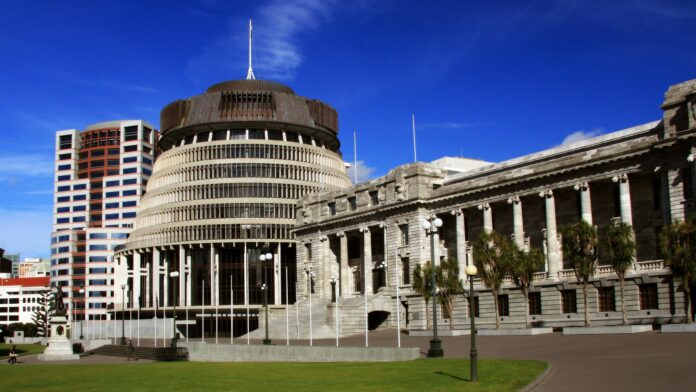Cross-party political unity – it is not often that you see it in a functioning democracy. But back in March-April as the COVID-19 pandemic closed down the world, New Zealand’s politicians joined forces and agreed to work together to fight the virus.
Not surprisingly, that unity was fleeting. Today, the headlines are filled with politicians’ angry claims and counterclaims about COVID-19-related border controls, quarantine and testing.
One major reason for this is that New Zealand has an election in September and campaigning is now well underway, with politicians gearing up to make their mark.
The Labour-led coalition government, helmed by the very popular Prime Minister Jacinda Ardern, is currently riding high in the polls. While it is expected the large gap in the polls between the two main parties will eventually narrow, at this stage a major upset seems unlikely.
Yet going forward, only one thing is certain: the focus of the campaign will be the response to COVID-19 and the post-COVID economic recovery.
So what does that mean for those interested in where the respective parties sit on issues of importance to the Jewish community?
NZ Jewish Council spokesperson Juliet Moses highlights a political divide in attitudes towards the Jewish community and Israel. Most parties have a favourable attitude towards the community to the extent that Israel-related issues can be compartmentalised, she says.
“The Government – primarily via the Labour ministers and with special mention of Minister of Ethnic Communities Jenny Salesa – has tried very hard to support us, particularly after the Christchurch mosque attacks, and that support has been significant in many different ways.
“National has worked hard to build bridges since UNSC resolution 2334 passed under its auspices, and [National MP] Alfred Ngaro who chairs the NZ-Israel Parliamentary Friendship Group, deserves special mention in that respect. ACT Party [a libertarian minor party] leader David Seymour is a friend of the community.”
In contrast, one of NZ First’s MPs has made what many consider to be antisemitic “jokes” in Parliament, while relations with the Green Party have been pretty fractious.
And, as far as Israel goes, the bag is mixed, with National generally better disposed towards Israel than Labour, Moses says.
“NZ First leader Winston Peters, who is also Minister of Foreign Affairs, has been very disappointing, after making all sorts of promising statements before the elections. Our UN voting record [on Israel-related resolutions] hasn’t changed for the better, if anything it is worse.”
Zionist Federation of NZ president Rob Berg’s assessment of the parties is similar. He too points to NZ First and Winston Peters as a disappointment. Likewise, he says that over the last three years the community has established some good relationships with key Labour MPs.
“There have also been some bilateral agreements between … Israel and New Zealand during this government’s term. But, on the whole, I rate their attitude to Israel as poor and… heavily influenced by the unions, who are mostly anti-Israel.”
With respect to National, Berg says, “The party’s new leader, Todd Muller, is a member of the New Zealand-Israel Parliamentary Friendship Group. However, his position on Israel remains unclear.”
David Zwartz, the former Honorary Consul of Israel in New Zealand and veteran Jewish community activist, says that, historically, the National Party and other right-of-centre parties have been more supportive of closer New Zealand-Israel connections than Labour and left-of-centre parties. He doesn’t see that changing.
But domestic issues that are relevant to the Jewish community are often matters that are important to other minority ethnic and faith groups as well, Zwartz says. “We all tend to work together through interfaith or multi-ethnic organisations… to get problems solved.
“These issues tend to be non-political issues like security for places of worship following the Christchurch mosque massacre and education for public acceptance of religious and ethnic diversity.”
Meanwhile, the findings of a recently released survey of the New Zealand Jewish community reveals that, in terms of political affiliation, the majority of New Zealand Jews surveyed were left-leaning, except in Auckland, where right-wing political affiliations were dominant.
What that means for how community members are likely to vote come September is, obviously, unknown. Berg thinks that while views on Israel will influence the way the Jewish community votes, it won’t be the main factor.
“Most will vote according to their political beliefs and those undecided will look at the COVID-19 response and plans for the economy. I do believe though that disappointment vis-á-vis NZ First and their stance on Israel will prevent some from voting for them again.
“And what happens in Israel in terms of the ‘annexation’ proposals and New Zealand government comments on this might also influence voting here – although I am guessing there is a fair split in the community on this issue too.”
- This article was written by Miriam Bell and first published by AIJAC.



